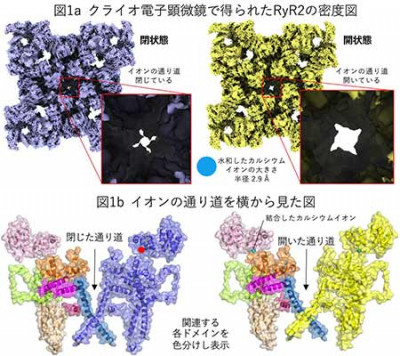嫌気条件下では、一般的な微生物群でも超強力な炭素-フッ素結合を切断することができる Under anaerobic conditions, common microbial communities can break the ultra-strong carbon-fluorine bond
2022-05-23 カリフォルニア大学リバーサイド校(UCR)
嫌気性条件下では、炭素-炭素二重結合が、微生物群による超強力な炭素-フッ素結合の破壊に重要である。炭素-炭素結合を切断しても完全には分解されないが、生成物は他の微生物に送られ、好気的条件下で脱フッ素化することができる。
今回の成果は、フッ素化PFASの炭素-フッ素結合を炭素-水素結合に置き換えることで、微生物によるフッ素除去に成功した最初の研究成果であり、同じ研究者による先行研究をベースにしています。
<関連情報>
- https://news.ucr.edu/articles/2022/05/23/microbes-can-degrade-toughest-pfas
- https://pubs.acs.org/doi/10.1021/acs.est.1c05509
嫌気性および好気性条件下における不飽和パーフルオロおよびポリフルオロカルボン酸の微生物による脱フッ素化。構造特異性に関する研究 Microbial Defluorination of Unsaturated Per- and Polyfluorinated Carboxylic Acids under Anaerobic and Aerobic Conditions: A Structure Specificity Study
Yaochun Yu, Shun Che, Changxu Ren, Bosen Jin, Zhenyu Tian, Jinyong Liu, and Yujie Men
Environmental Science&Technology Published:April 4, 2022
DOI:https://doi.org/10.1021/acs.est.1c05509

Abstract
The recently discovered microbial reductive defluorination of two C6 branched and unsaturated fluorinated carboxylic acids (FCAs) provided valuable insights into the environmental fate of per- and polyfluoroalkyl substances (PFASs) and potential bioremediation strategies. However, a systematic investigation is needed to further demonstrate the role of C═C double bonds in the biodegradability of unsaturated PFASs. Here, we examined the structure-biodegradability relationships of 13 FCAs, including nine commercially available unsaturated FCAs and four structurally similar saturated ones, in an anaerobic defluorinating enrichment and an activated sludge community. The anaerobic and aerobic transformation/defluorination pathways were elucidated. The results showed that under anaerobic conditions, the α,β-unsaturation is crucial for FCA biotransformation via reductive defluorination and/or hydrogenation pathways. With sp2 C–F bonds being substituted by C–H bonds, the reductive defluorination became less favorable than hydrogenation. Moreover, for the first time, we reported enhanced degradability and defluorination capability of specific unsaturated FCA structures with trifluoromethyl (-CF3) branches at the α/β-carbon. Such FCA structures can undergo anaerobic abiotic defluorination in the presence of reducing agents and significant aerobic microbial defluorination. Given the diverse applications and emerging concerns of fluorochemicals, this work not only advances the fundamental understanding of the fate of unsaturated PFASs in natural and engineered environments but also may provide insights into the design of readily degradable fluorinated alternatives to existing PFAS compounds.


